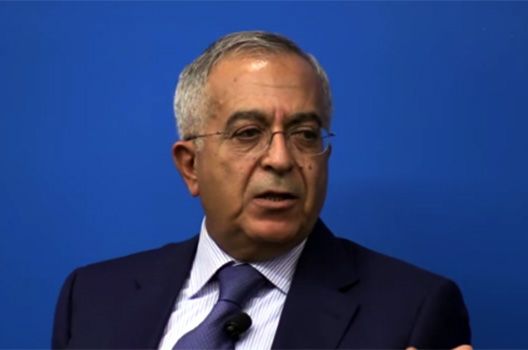 In the aftermath of seven weeks of conflict in Gaza, regional and international stakeholders are grappling with the day after. Efforts to address short-term issues such as relief and recovery that require immediate attention should not detract from broader issues including lasting stability, development, security, and political pluralism. Does the recent conflict allow for a political framework, and does the economic challenge of Gaza enable a national dialogue that leads to political pluralism?
In the aftermath of seven weeks of conflict in Gaza, regional and international stakeholders are grappling with the day after. Efforts to address short-term issues such as relief and recovery that require immediate attention should not detract from broader issues including lasting stability, development, security, and political pluralism. Does the recent conflict allow for a political framework, and does the economic challenge of Gaza enable a national dialogue that leads to political pluralism?
To address these critical issues, the Middle East Peace and Security Initiative, part of the Atlantic Council’s Brent Scowcroft Center on International Security, cohosted a panel discussion with the Aspen Institute’s Middle East Program on September 15, 2014 featuring Dr. Salam Fayyad, former prime minister of the Palestinian Authority and distinguished statesman at the Atlantic Council; Ambassador Jeffrey Feltman, United Nations under secretary general for political affairs; and moderator Walter Isaacson, president and CEO of the Aspen Institute.
Isaacson opened the conversation by asking what the future steps for Palestinians and the Palestinian Authority will be given the destruction in Gaza. Politically, Fayyad called for two critical adjustments to the current paradigm prior to a return to negotiations:
- Palestinian representation must form a national dialogue that encompasses not only the Palestinian Liberation Organization (PLO) that has internationally-recognized de jure power of representation but also all factions, independent of their commitment to the 1993 Oslo Accords;
- And the 1993 Oslo Accords must cease to be an open-ended agreement through the adoption of a specific deadline for the end of the occupation – Fayyad noted specifically that Oslo was meant to move on to “permanent status issues” by 1999, but fifteen years later, there is no end in sight to the occupation.
Feltman noted that the UN would like to see the Palestinian Government of National Consensus (suggested by the Fatah-Hamas Reconciliation Agreement in April) function in order to create a legitimate and accountable Palestinian government. In the short term, he stressed the importance of the dire humanitarian situation in Gaza, and warned that the relief and reconstruction mechanism adopted in 2008 and 2009 will be insufficient for Gaza’s needs at present. Feltman postulated that any sort of reconstruction mechanism must address four simultaneous issues:
- It must satisfy Israel’s security needs;
- It must allow for a sufficient scale of resources to meet the needs;
- It must provide donors’ assurances that materials will in fact move to the necessary areas;
- It must have a sufficient capacity to move resources across the borders.
Both speakers mentioned that trust among all parties suffered significantly due to intense armed conflict this summer and warned that the announcement of the Israeli confiscation of nearly 1,000 acres of Palestinian land for a settlement south of Bethlehem was a significant detriment to any process of restoring trust or moving forward toward a peace process. The speakers further agreed on the significance of a Palestinian state that reflects the desires of all parties, considered legitimate by its people, for the future of the peace process.
